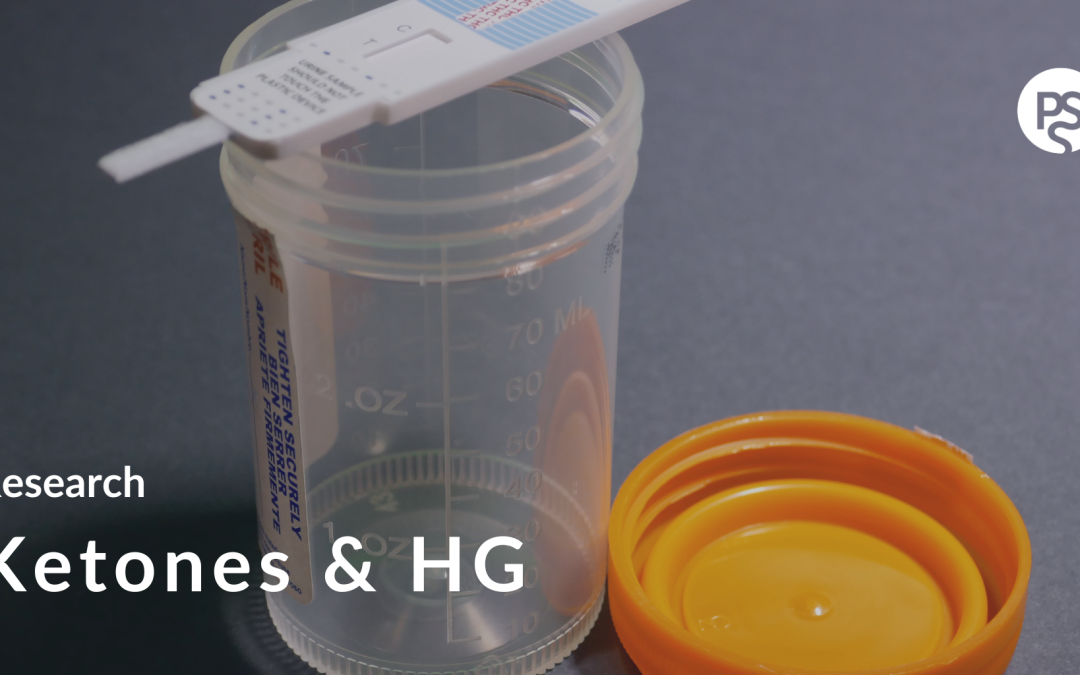Hyperemesis gravidarum (HG), a severe form of nausea and vomiting in pregnancy, is a debilitating condition that can significantly impact the health and well-being of pregnant women. One of the critical aspects of managing HG is assessing and addressing dehydration, a common complication of severe nausea and vomiting. However, since my own experience with Hyperemesis in 2015 and for many years before me, there has been a concerning and in some cases a devastating reliance on urine ketone levels as the primary indicator of dehydration in HG.
Ketones in Pregnancy: Not the Full Picture
Ketones are chemicals produced when the body burns fat for energy, a common occurrence in fasting states or when carbohydrate intake is low. In pregnancy, particularly in conditions like HG where food and fluid intake is severely limited, ketone production can increase. However, the presence of ketones in the urine of pregnant women, especially those with HG, is not a reliable indicator of dehydration.
Unlike other medical conditions, pregnancy alters metabolism and can lead to ketonuria (ketones in urine) even in well-hydrated individuals and vice versa an absence in ketones in those who are malnourished and unable to keep any fluids down at all! This means that ketone levels can be misleading when used as the sole criterion for dehydration and the need for treatment, such as intravenous (IV) fluids.
Real Stories, Real Struggles
Consider the story of “Anna,” a fictional character based on common experiences. Anna, 16 weeks pregnant, has been struggling with HG. Despite experiencing severe symptoms, her urine ketone levels were low, leading to her being denied IV fluid treatment. Anna’s story is not unique; many women with HG face similar challenges where their dehydration and need for treatment are overlooked due to a lack of elevated ketones in their urine.
Looking Beyond Ketones: Other Clinical Indicators
Pregnancy Sickness Support have been campaigning for the removal of ketones from hyperemesis pathways for decades. Healthcare providers should consider a holistic approach when assessing dehydration in HG, including:
- Clinical symptoms: Persistent nausea, vomiting, inability to keep fluids down, and weight loss are key indicators of HG and potential dehydration.
- Orthostatic vital signs: Changes in blood pressure and heart rate upon standing can indicate fluid depletion.
- Mucous membrane status: Dryness of the mouth and lips is a tell-tale sign of dehydration.
- Overall clinical picture: A comprehensive assessment including physical examination and patient history should guide treatment decisions.
The new Royal College of Obstetricians and Gynaecologist Guidelines 2024 – a breakthrough!
In 2024 after a very long wait to update the 2016 guidelines that still included ketones as part of diagnosis for dehydration, the new RCOG Guidelines actively advise healthcare professionals that ketones are not to be used to diagnose dehydration and do not need to be accessed to be able to clinical determine whether a woman is dehydrated or not. This is incredible news for all hyperemesis sufferers, but we recognise that this could take time to filter down to GPs and Midwives and be considered when updating HG pathways.
If you are still dismissed please contact our support team so we can advise information you can send/speak to your healthcare professional about. If in doubt print out the guidelines on our treatments page and ask them to read it!

